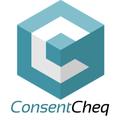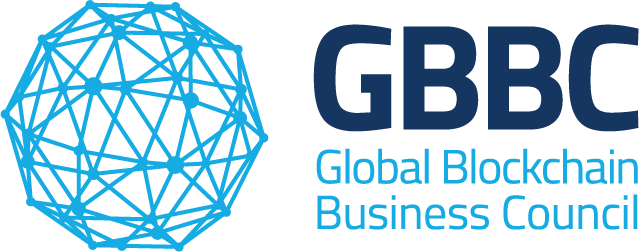
Certara
Certara is a global leader in biosimulation, a technology that uses computer models to predict how drugs will behave in the human body. Founded in 2008 and headquartered in Princeton, New Jersey, its mission is to accelerate the development of new medicines by transforming the traditional drug discovery and development process.
The company offers a comprehensive suite of software and services that are used by over 2,000 biopharmaceutical companies, academic institutions, and regulatory agencies in 62 countries. Certara's Simcyp Simulator, for example, is a physiologically-based pharmacokinetic (PBPK) modeling platform that is widely used to predict drug interactions. In addition to its software, Certara provides a range of consulting services, including regulatory science, market access, and medical writing.
Certara's OpenPharma innovation has developed a decentralized application called Hasharc that is built on the Hedera network and designed to address key challenges in the life sciences industry, such as supply chain security, patient safety, and regulatory compliance.
Project Information
Related Projects

ConsentCheq, a service by PrivacyCheq, is a consent management platform that helps businesses comply with global privacy regulations such as GDPR, CCPA, and COPPA. Since its launch in 2016, the company has focused on providing a "single source of truth" for user consent, enabling enterprises to manage and honor user privacy preferences in real-time across all their systems.
The core of ConsentCheq's service is a full-stack transparency and consent management solution. It provides tools for businesses to deliver clear privacy notices and to capture, log, and manage user consent for data collection and processing. A key feature is the "Consent Dashboard," a centralised interface where users can view and control their privacy settings for any business that uses the ConsentCheq service. The platform also offers "Consentive," an incentive-based system where consumers can be rewarded with micropayments for granting consent, which is designed to increase opt-in rates for data processing.
ConsentCheq's connection to the Hedera network is central to its "Consentive" service. The platform uses the Hedera Consensus Service (HCS) to create a high-throughput, low-cost, and auditable log of consent verification and payment events. Under privacy laws, advertising networks must verify consumer consent each time they process or track them.

LokkaRoom is a digital sporting event engagement platform designed to revolutionize and enhance fan engagement across the global sports industry. Developed by TMA Sport and built on the Hedera Hashgraph network, it provides a centralized and secure ecosystem where sports organizations, clubs, athletes, sponsors, and fans can connect and interact.
The platform leverages Web3 technologies to offer a range of digital experiences, including event ticketing, exclusive memberships, digital collectible non-fungible tokens (NFTs), merchandise sales, live voting and polling, and access to unique branded content.
LokkaRoom aims to deepen the connection between fans and their sporting heroes by enabling more meaningful and rewarding interactions. For clubs and athletes, it offers new avenues for sustainable revenue generation, brand building, and direct engagement with their supporter base.
It utilizes unique FIAT-backed tokens for in-platform transactions, making the platform secure and accessible for all fans and features partnerships with numerous organizations including the MK Breakers, Manchester Giants, and Derby Trailblazers basketball clubs.

Trustury, developed by Meeco, is a specialized platform designed to enhance the transparency and auditability of tokenized assets on the Hedera blockchain network, particularly those focused on environmental, social, and governance (ESG) criteria. It functions as an open-source interface that enables users to manage, visualize, and securely share trusted information associated with tokens and decentralized identifiers (DIDs) on the Hedera network. The platform's primary role is to support the growth and adoption of Hedera's Guardian, a modular open-source solution for creating highly auditable and compliant tokenization workflows.
It provides a public-facing dashboard or "explorer" that displays tokens from across the Hedera ecosystem, allowing stakeholders to drill down into a token’s provenance and verify its adherence to specific standards or policies, such as ESG requirements.
Trustury integrates deeply with Hedera's native services, using the Hedera Token Service (HTS) to fetch token details and its DID method for identity management. By providing clear visualization tools and a consistent mechanism for users to interact with Guardian-based assets, Trustury serves as essential infrastructure for building trusted, auditable, and sustainable digital economies on Hedera.

The InterWork Alliance (IWA) is an organization focused on simplifying and standardizing the use of token-powered services for businesses. As an initiative of the Global Blockchain Business Council (GBBC), the IWA works to create a common language and framework for tokenized assets, which allows different blockchain networks and applications to work together seamlessly.
The alliance's primary mission is to empower organizations to adopt and use token-based distributed services in their day-to-day operations. To achieve this, the IWA has developed several key frameworks, including the Token Taxonomy Framework (TTF), which provides a common set of definitions and standards for tokens of all types. The IWA also has a strong focus on sustainability, with task forces dedicated to creating standards for Voluntary Ecological Markets and Carbon Emission Tokens.
The Hedera network and its ecosystem partners are active members and contributors to the InterWork Alliance. Hedera has collaborated with the IWA on its Sustainability Working Group, and several applications built on Hedera are designed to be compliant with the IWA's standards.
